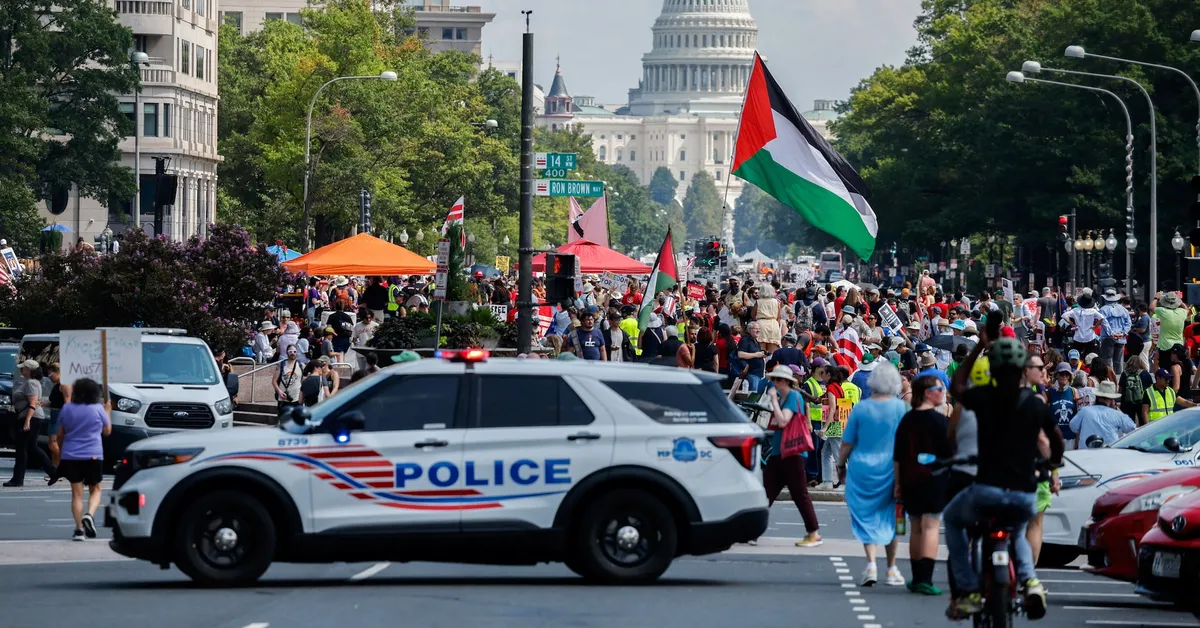
On September 6, 2023, several thousand protesters gathered in Washington, D.C., to voice their opposition against President Donald Trump's deployment of National Guard troops to patrol the streets of the capital. The demonstration, part of the "We Are All D.C." march, included a diverse group of individuals, including undocumented immigrants and advocates for Palestinian statehood. Protesters chanted slogans such as "Trump must go now," "Free DC," and "Resist Tyranny," highlighting their discontent with the current administration.
President Trump, who has threatened similar crackdowns in other Democratic-led cities, recently posted on social media about potential migrant deportations in Chicago, using an image that parodied the iconic Vietnam War film, "Apocalypse Now." Demonstrators expressed their concerns about what they described as an "authoritarian regime," with protester Alex Laufer stating, "We're opposing the authoritarian regime, and we need to get the federal police and the National Guard off our streets."
Trump's decision to deploy the National Guard was framed as a response to rising crime rates. However, data from the Justice Department indicated that violent crime in Washington, D.C. reached a 30-year low in 2024. The National Guard operates as a militia under the governors of the 50 states, but in the case of D.C., it reports directly to the President. The deployment has drawn criticism for being a form of federal overreach, particularly as Trump placed the capital's Metropolitan Police Department under federal control and sent in additional federal law enforcement personnel, including members of Immigration and Customs Enforcement (ICE).
In response to the deployment, D.C. Attorney General Brian Schwalb filed a lawsuit aiming to block the troop presence, citing constitutional violations and breaches of federal law. Despite this, some local residents have welcomed the National Guard, calling for their deployment in neighborhoods facing higher crime rates. Currently, over 2,000 troops from six Republican-led states are patrolling the city, with their mission extended through November 30.
Washington, D.C. Mayor Muriel Bowser has expressed her support for the increased federal presence, acknowledging a decrease in crime rates, including a drop in carjackings, since the National Guard's arrival. However, she has indicated a desire for the National Guard's mission to conclude soon, emphasizing the need for coordination with federal law enforcement.
While the protests took place, President Trump was reported to be playing golf at his course outside D.C. He continued to escalate pressure on Chicago via his Truth Social platform, stating, "I love the smell of deportations in the morning," while sharing an AI-generated image of himself dressed as a military officer from the "Apocalypse Now" film. This rhetoric has raised concerns about the potential militarization of urban areas and the ongoing political tensions surrounding law enforcement and immigration.
The events in Washington, D.C. reflect a growing divide in the United States over issues of law enforcement, immigration policy, and federal control, with implications that could resonate well beyond the capital.